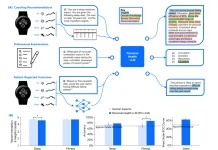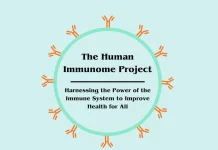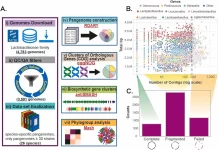A new study from deCODE genetics on actionable genotypes shows the potential of genetics to guide healthcare and improve outcomes. The research, published in the New England Journal of Medicine, screened the genomes of nearly 58,000 Icelanders for disease-linked variants. The results suggest that disease-causing gene variants (actionable genotypes) can significantly reduce lifespan by at least three years than their non-carrier counterparts. Identifying these genes can lead to earlier interventions and reduced mortality. This evidence supports Iceland’s bold plan to offer nationwide genetic screening to all citizens – a pioneering move that may pave the way for personalized medicine globally.
The small island nation of Iceland is embarking on an ambitious project – to offer genetic screening to all of its citizens. This unprecedented effort in precision medicine is being driven by exciting new research coming out of deCODE genetics, a subsidiary of Amgen located in Iceland.
What is an Actionable Genotype?
An actionable genotype refers to a specific genetic variant or combination of genetic variants with known or potential implications for an individual’s health and can lead to actionable steps or interventions. These actionable steps may include preventive measures, medical treatments, lifestyle changes, or other interventions aimed at mitigating the risks associated with the identified genetic information.
In the context of personalized medicine and genetic testing, identifying actionable genotypes allows healthcare professionals to make informed decisions about patient care based on the genetic information available. For example, if a person has a genetic predisposition to cardiovascular disease, which may be indicated by specific genetic markers associated with elevated cholesterol levels. In such a case, healthcare providers may recommend preventive measures such as Regular Cholesterol Screenings, Healthy Diet and Lifestyle Modifications, and Medication to manage or reduce that risk.
Significant Impacts on Lifespan
The study utilized a list of 73 genes deemed actionable according to the guidelines provided by the American College of Medical Genetics and Genomics (ACMG). The results suggest that 4% of participants carried at least one actionable genotype for cardiovascular, cancer, and metabolic diseases.
The effects on lifespan were striking; the most significant impact was seen in individuals with genotypes predisposing them to cancer, leading to a median survival three years shorter than non-carriers. Specifically, a pathogenic variant in BRCA2, associated with breast, ovarian, and pancreatic cancers, was associated with a seven-year reduction in lifespan. Additionally, a variant in LDLR, contributing to elevated cholesterol levels and cardiovascular disease, was linked to a six-year decrease in lifespan.
Genetic Screening Allows for Earlier Intervention
This demonstrates that genetics can identify individuals at higher risk for preventable diseases. The study’s senior author, Dr. Kari Stefansson of deCODE genetics, said, “The identification and disclosure of actionable genotypes to participants can guide clinical decision-making, which may result in improved patient outcomes.” Iceland’s government agrees, prompting the planned national screening program.
Iceland Uniquely Positioned for Genomic Medicine
The success of deCODE genetics has put Iceland on the cutting edge of human genomics research. The firm has sequenced the genomes of over half the Icelandic population. Combining this data with the country’s extensive genealogical records and a national healthcare system creates a perfect environment to translate genetics into personalized medicine.
Ethical Considerations
There may be ethical concerns over Iceland’s genomic screening plan. Handing out genetic test results that show increased risks of severe illnesses has proved controversial in other contexts. There is also the danger of overtesting or overtreatment if risks are not clearly communicated.
However, used responsibly, the potential benefits are too significant to ignore. Genomics can let doctors customize screening and preventive recommendations based on a patient’s genetic background. For example, BRCA2 carriers could start mammogram screening earlier and undergo prophylactic surgery. Of course, patients will make the final decisions on their healthcare.
Conclusion
Iceland’s nationwide genomic screening program is groundbreaking. While challenges lie ahead, the potential to save lives makes this effort worthwhile. The bold plan shows how small countries can have an outsized impact on the future of medicine. If successful, Iceland’s model may pave the way for personalized healthcare around the globe.
Story Source: Reference Paper | Reference Article
Learn More:
Dr. Tamanna Anwar is a Scientist and Co-founder of the Centre of Bioinformatics Research and Technology (CBIRT). She is a passionate bioinformatics scientist and a visionary entrepreneur. Dr. Tamanna has worked as a Young Scientist at Jawaharlal Nehru University, New Delhi. She has also worked as a Postdoctoral Fellow at the University of Saskatchewan, Canada. She has several scientific research publications in high-impact research journals. Her latest endeavor is the development of a platform that acts as a one-stop solution for all bioinformatics related information as well as developing a bioinformatics news portal to report cutting-edge bioinformatics breakthroughs.















